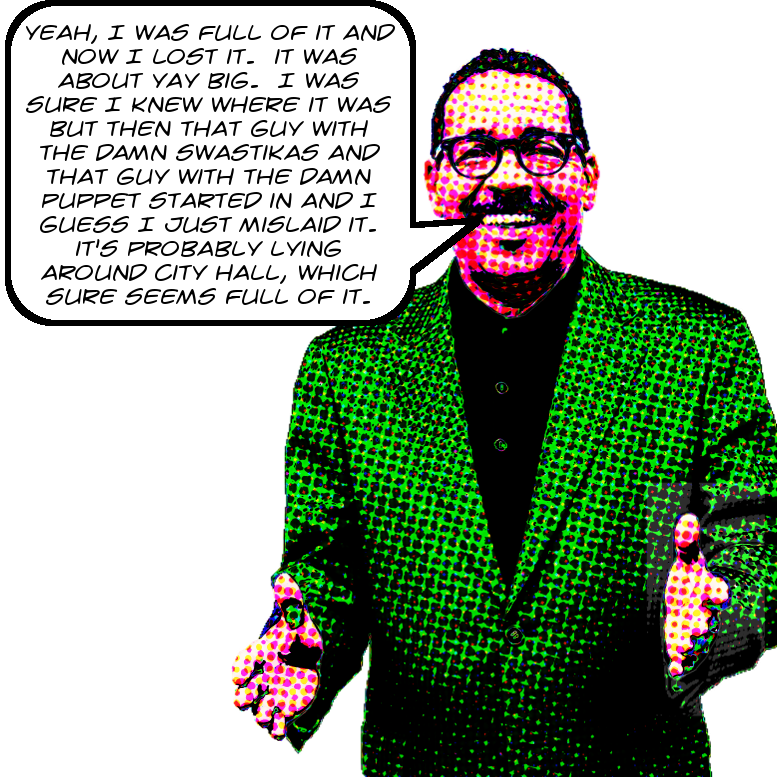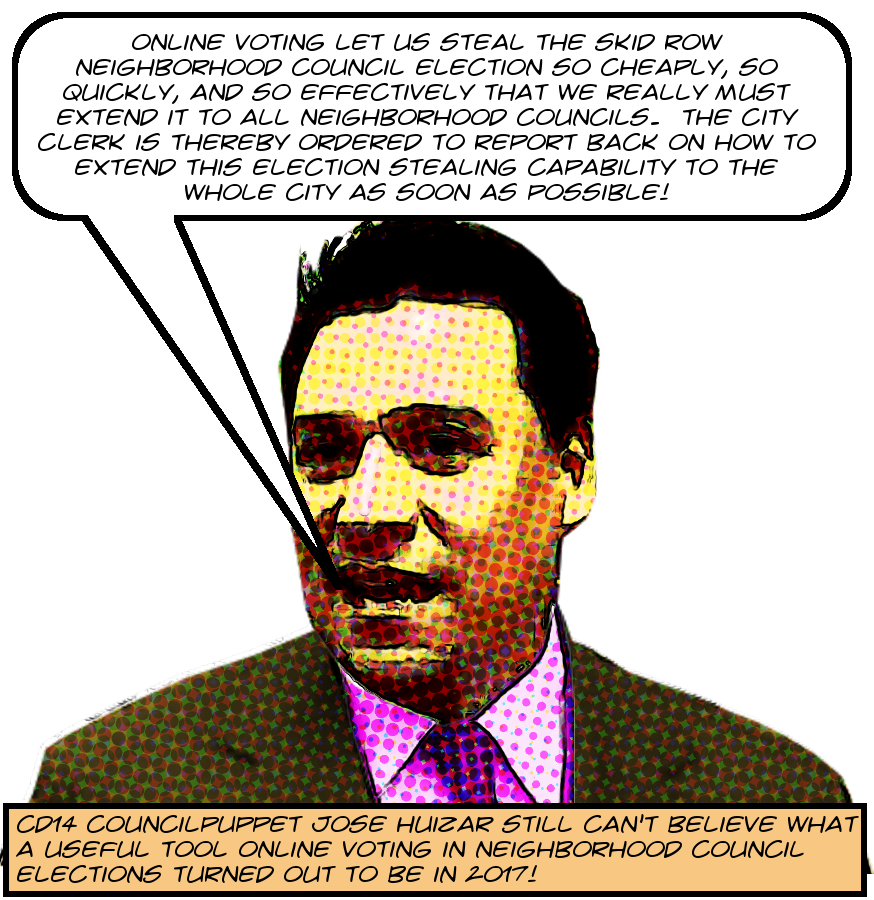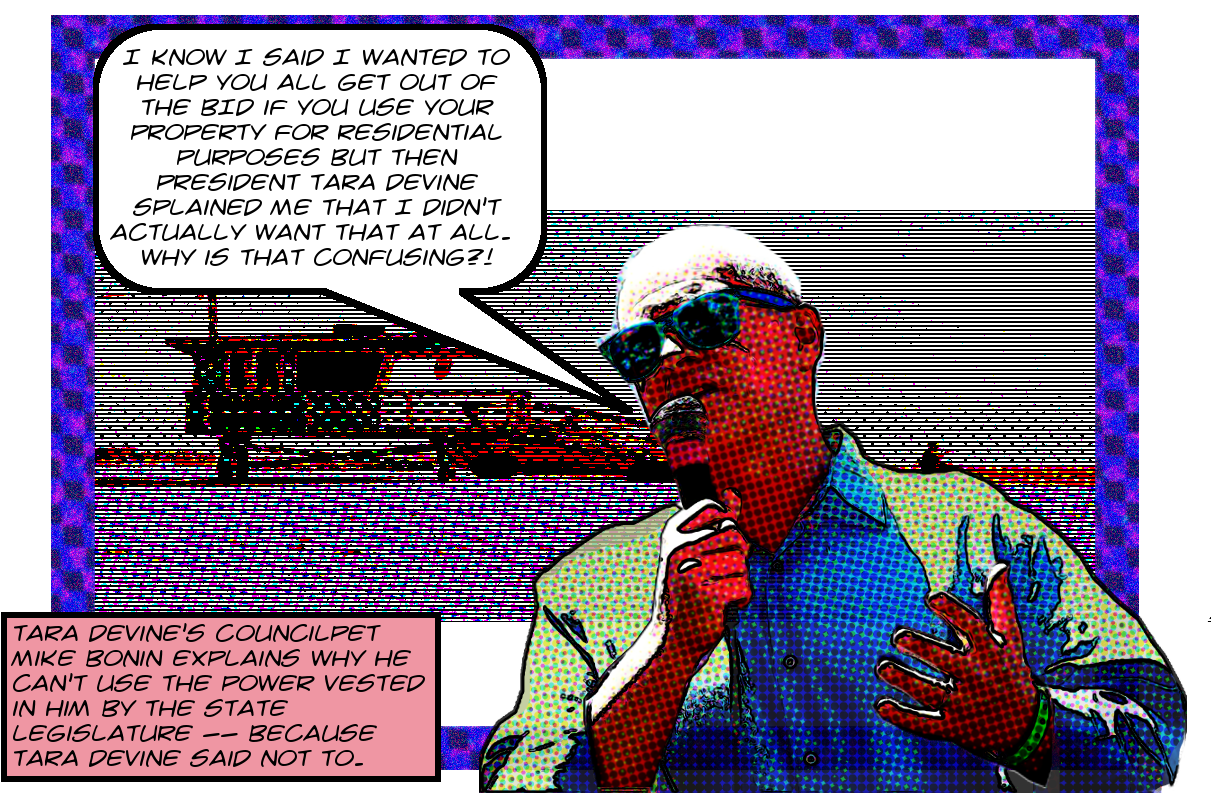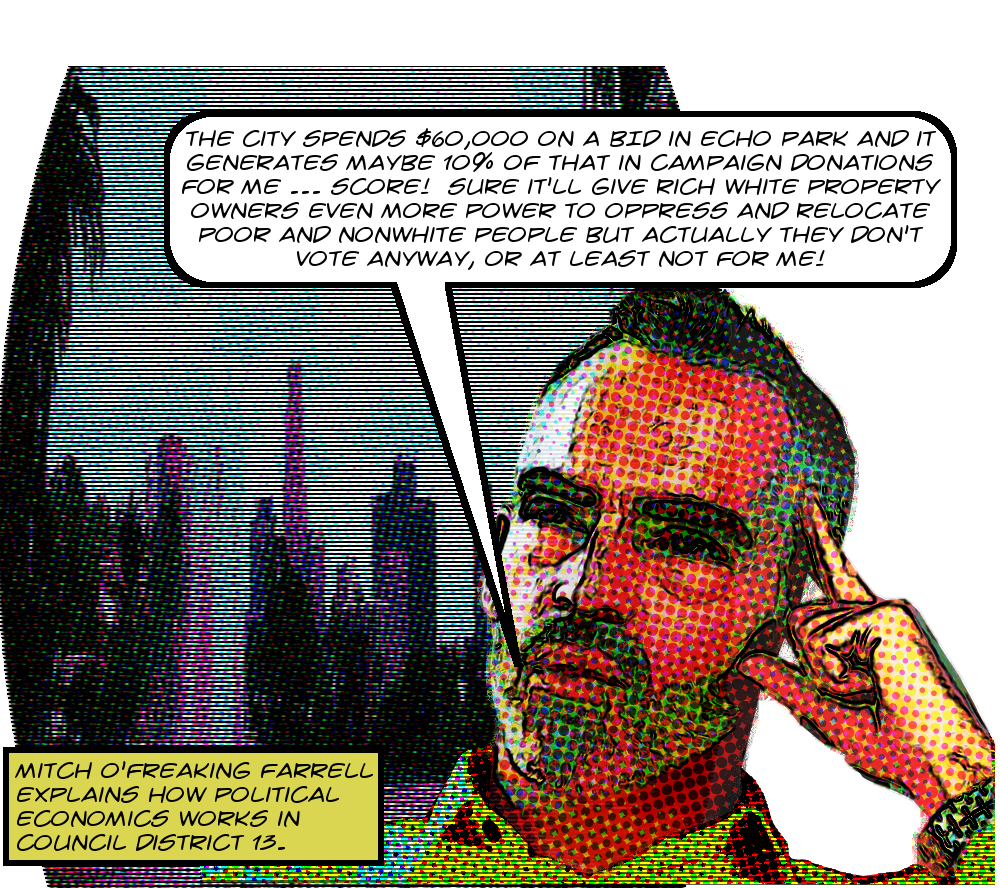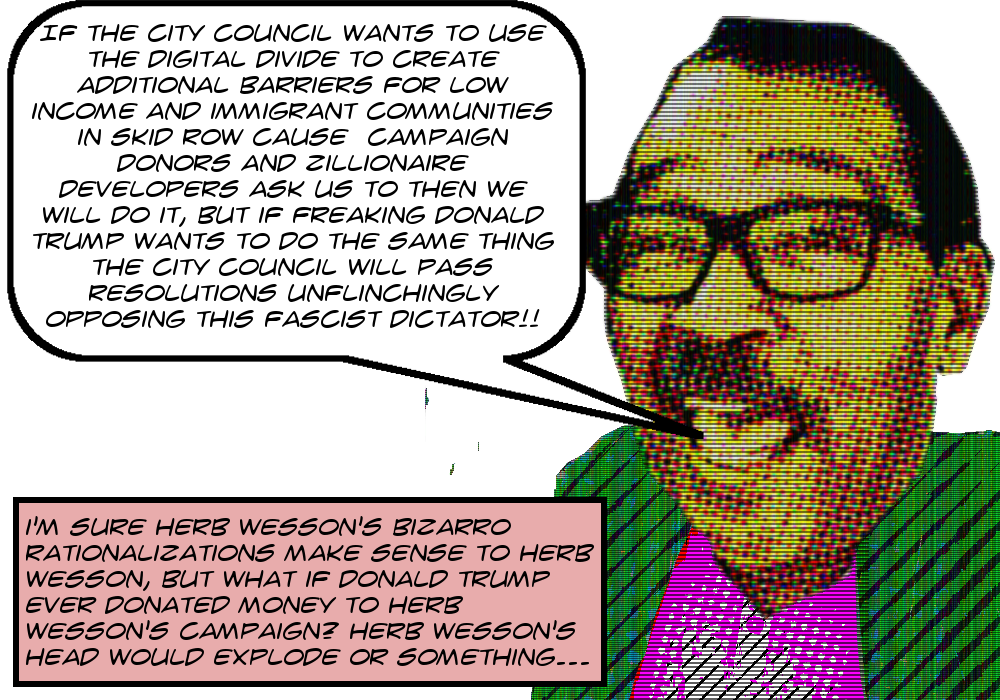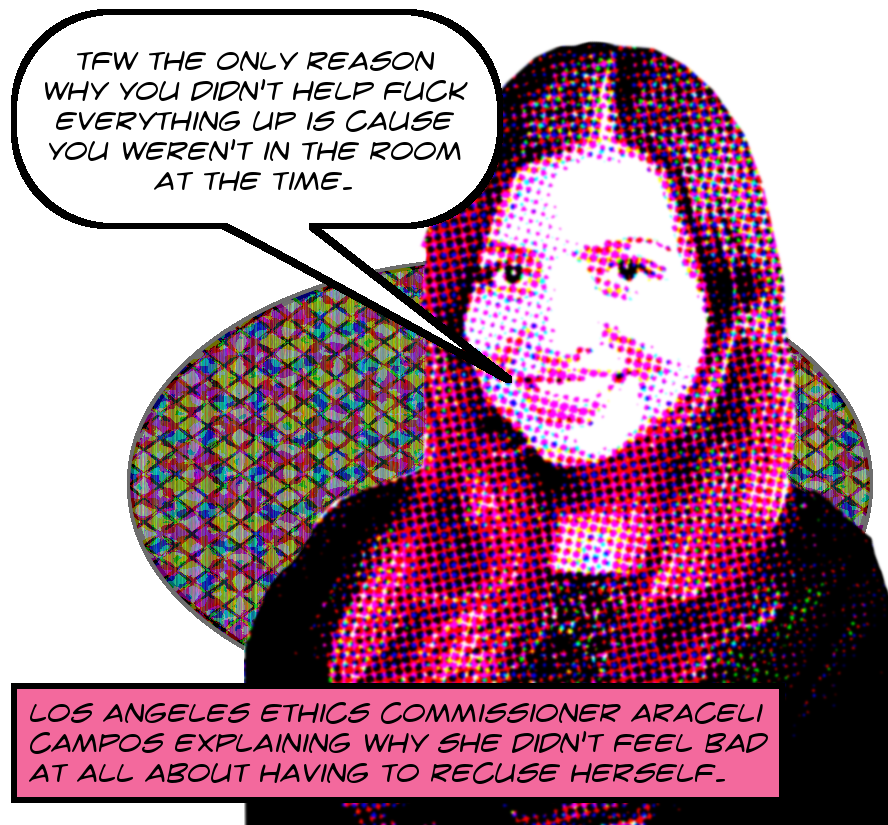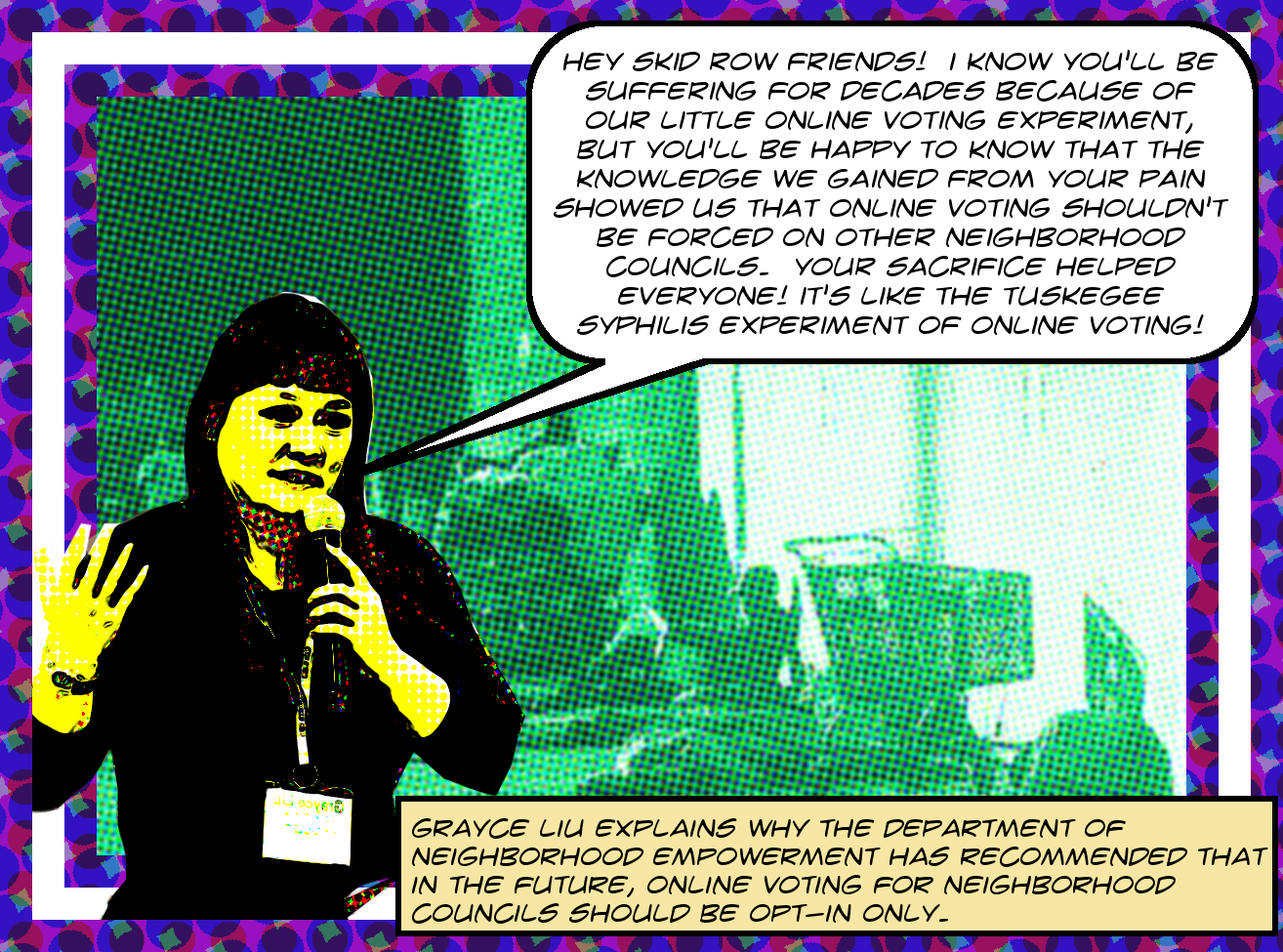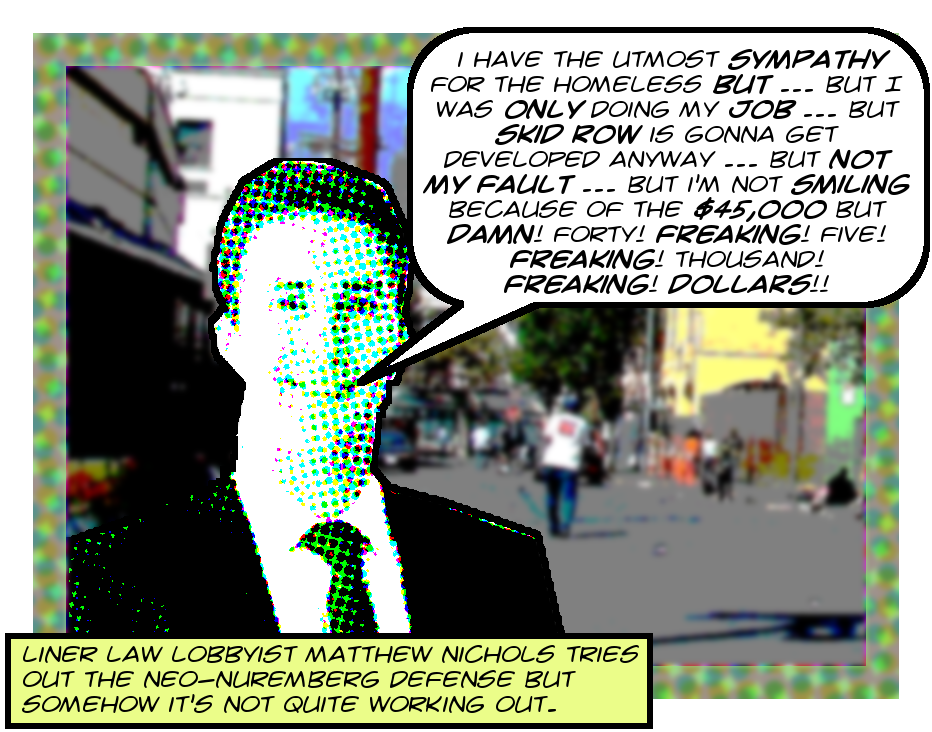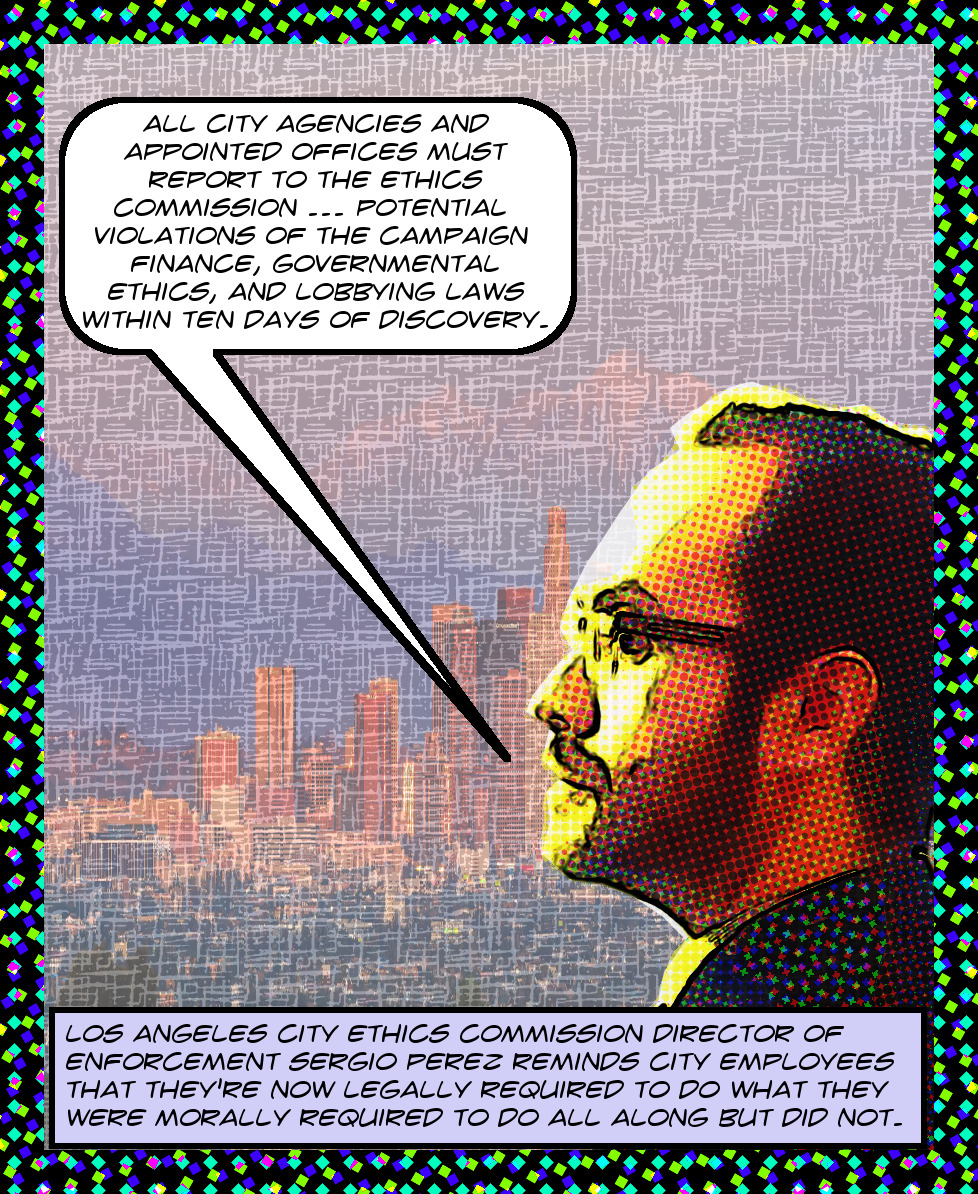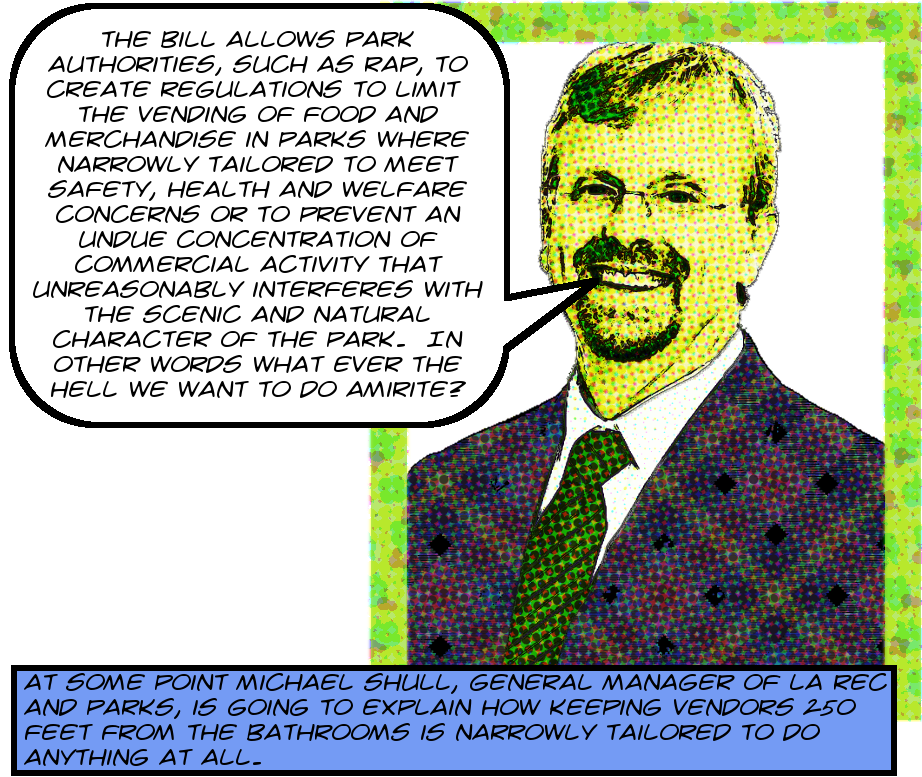 In September Jerry Brown effectively ended almost a decade’s worth of lunatic zillionaire opposition to street vending in Los Angeles when he signed into law Ricardo Lara’s monumental SB-946, which puts really strict limits on what municipalities can do to regulate vendors. In particular the law explicitly forbids cities to ban street vending anywhere other than for reasons “[d]irectly related to objective health, safety, or welfare concerns.”
In September Jerry Brown effectively ended almost a decade’s worth of lunatic zillionaire opposition to street vending in Los Angeles when he signed into law Ricardo Lara’s monumental SB-946, which puts really strict limits on what municipalities can do to regulate vendors. In particular the law explicitly forbids cities to ban street vending anywhere other than for reasons “[d]irectly related to objective health, safety, or welfare concerns.”
And briefly it appeared that the City Council was going to try seriously to meet the challenge of developing compliant regulations But then things, as they often will do over at 200 N. Spring Street, rapidly devolved into fractious fractionated factionalism, with each Councilmember rushing about adding ad hoc restrictions, limitations, and so on at the mere behest of any zillionaire with $700 to kick into the old officeholder account. And yesterday this trend went on, worsened, and weirded up with the opening of supplementary Council File CF 13-1493-S6, which has to do with regulating vending in City parks.
The new law allows cities to regulate street vending in parks to some extent, and this council file is a response to that permission. It’s very sparse right now, having only started yesterday, and contains only a set of regulations proposed by Rec and Parks, a recommendation that the Council adopt them, and some kind of cover sheet. Now, Lara’s bill does allow cities to regulate vending in parks slightly more broadly than in general. In particular it allows regulation to protect “the scenic and natural character of the park” and some similar considerations. However, regulations must still be narrowly tailored to address these concerns.
But the restrictions in RAP’s proposal are anything but narrowly tailored, and there’s no plausible way they address the kinds of concerns that the law allows. For instance they contain a blanket ban on vending “within 250 feet of any building, recreation center, bathroom, structure or playground” and “within 500 feet of any school site, camp, youth activity center or senior center located on park property” and within “25 feet of any park fountain, statue, monument, or art installation.” Think of the parks you’re familiar with in Los Angeles. How many of them have any part that’s more than 250 feet from a building or a bathroom or a playground? If adopted, these regulations will constitute a de facto ban on vending in parks, which obviously isn’t consistent with the law.
It’s going to be interesting in some kind of abstract lookie-loo way to watch the City try to explain how a blanket prohibition from selling sliced mango within 250 feet of a bathroom is “[d]irectly related to objective health, safety, or welfare concerns,” how selling a taco within 500 feet of a senior center is “[d]irectly related to objective health, safety, or welfare concerns,” and so on. It’s also going to be interesting to watch the lawsuits that are sure to be filed if the City adopts this nonsense and ever tries to enforce it. It would be more interesting, of course, to watch the City government behaving like mature lawmakers. That, though, is never going to happen, so we have to take our enjoyment where we can.
And turn the page for a transcription of the so-called time, place, and manner regulations being proposed by RAP. I only quoted the worst ones above, but the rest of them are also not good, and therefore worth reading.
Continue reading City Council Continues Its Long Slide Into Delusion With Respect To Street Vending Regulation As Rec And Parks Files Proposed Rules — Banning Vendors Within 250 Feet Of Playgrounds, Bathrooms, Buildings — Within 500 Feet Of Senior Centers — Which Would Keep Them Altogether Out Of Most Parks In Los Angeles — This Is Obviously Not “Narrowly Tailored To Meet Safety, Health, And Welfare Concerns” — The City Is Begging For Yet Another Lawsuit

